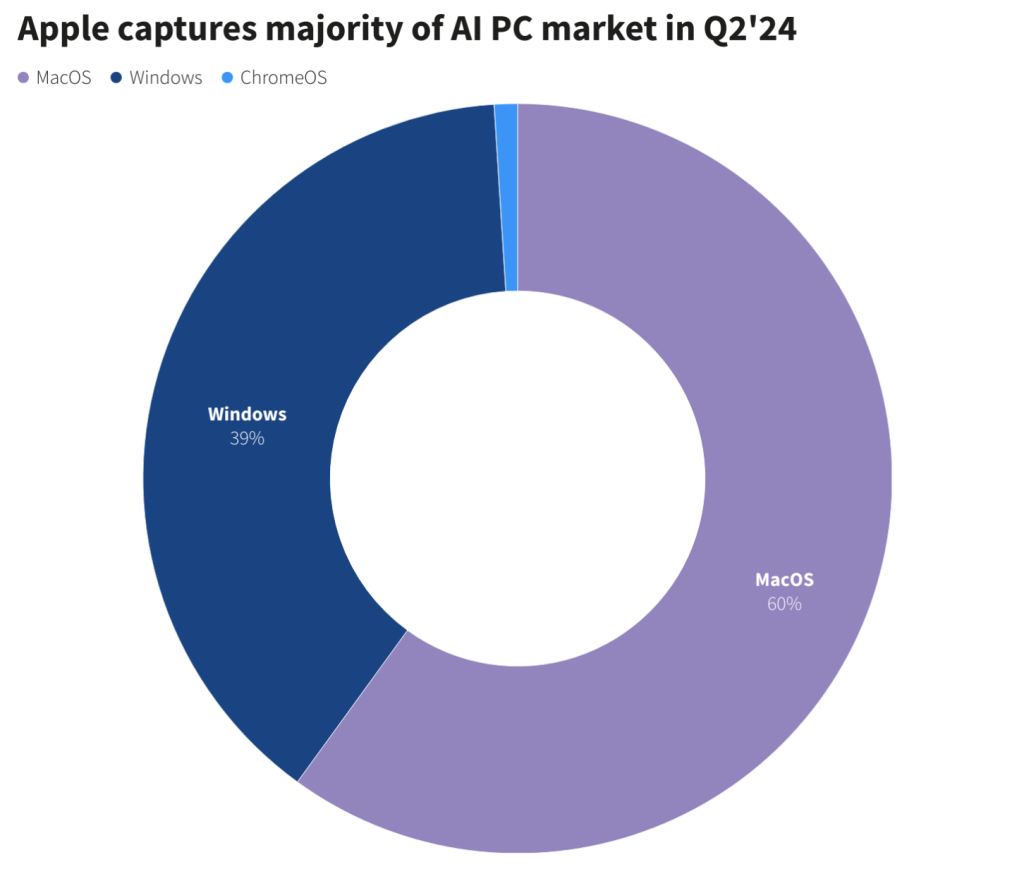
This change represents an important advance toward more intelligent and powerful personal computing.
On August 13, Reuters reported that AI-enabled PCs made up 14% of all personal computers shipped in the second quarter, with Apple leading the charge, according to research firm Canalys. The inclusion of artificial intelligence features is helping to revive demand in the PC market.
WHY IT MATTERS:
PC manufacturers and chipmakers are banking on the potential of devices capable of executing AI tasks locally, without relying on the cloud, as the industry gradually recovers from its deepest downturn in years.
These devices generally include neural processing units specifically designed for handling AI tasks.
BY THE NUMBERS:
Apple dominates approximately 60% of the AI PC market, according to the report, thanks to its Mac lineup featuring M-series chips with a neural engine.
AI PC shipments within Microsoft‘s Windows ecosystem surged by 127% quarter-over-quarter. The tech giant introduced its “Copilot+” AI PCs in May, featuring Qualcomm’s Snapdragon PC chips built on Arm Holdings’ architecture.
Struggling chipmaker Intel also increased its deliveries of AI PC chips, aiming to benefit from the growing demand for AI-capable devices, according to the report.
The rise of AI PCs is also boosting the premium segment, with shipments of Windows PCs priced over $800 growing 9% quarter-over-quarter.
Lenovo‘s AI PC shipments surged by 228% quarter-over-quarter, accounting for approximately 6% of its total Windows PC shipments in the June quarter.
AI PCs made up 8% of HP‘s Windows shipments, while Dell saw just under 7% of its Windows shipments represented by AI PCs.
KEY QUOTE
“With a solid foundation in place, AI-capable PC shipments are expected to accelerate in the second half of 2024,” said Ishan Dutt, principal analyst at Canalys.
GRAPHIC
